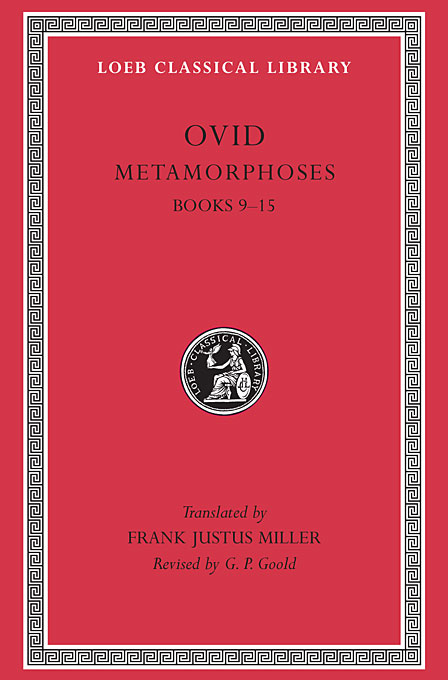
Categorii: Neclasificate
Limba: Engleza
Data publicării: 1989
Editura: Harvard University Press
Tip copertă: Hardcover
Nr Pag: 512
Colectie: Loeb Classical Library
Traducatori: Frank Justus Miller
Editia: 2 ed
ISBN: 9780674990470
Dimensiuni: l: 11.5cm | H: 17cm | 2.8cm | 366g

Ovid (Publius Ovidius Naso, 43 BCE–17 CE), born at Sulmo, studied rhetoric and law at Rome. Later he did considerable public service there, and otherwise devoted himself to poetry and to society. Famous at first, he offended the emperor Augustus with his Ars Amatoria (Art of Love). He was banished because of this work and some other reason unknown to us, and dwelt in the cold and primitive town of Tomis on the Black Sea. He continued writing poetry—a kindly man, leading a temperate life—and died in exile.
Ovid’s main surviving works are the Metamorphoses (in two volumes), a source of inspiration to artists and poets including Chaucer and Shakespeare; the Heroides, fictitious love letters by legendary women to absent husbands and lovers; the Amores, elegies ostensibly about the poet’s love affair with his mistress Corinna; the Ars Amatoria, not moral, but clever—and in parts, beautiful; the Fasti, a poetic treatment of the Roman year of which Ovid finished only half; and the dismal works written in exile: the Tristia, appeals to persons including his wife and also the emperor; and the similar Epistulae ex Ponto. Poetry came naturally to Ovid, who at his best is lively, graphic and lucid.
In the Metamorphoses, his most influential work, Ovid weaves a hexametric whole from a huge range of myths, which are connected by the theme of change and ingeniously linked as the narrative proceeds from earliest creation to transformation in Ovid’s own time.
The Loeb Classical Library edition of Ovid is in six volumes.